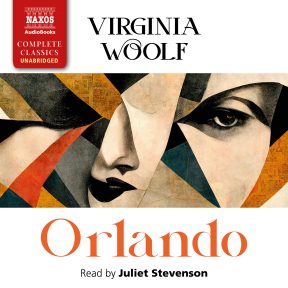The NAB Blog
Breaking Boundaries – Virginia Woolf’s Orlando
By Anthony Anderson
13 March 2024
 ‘Orlando had become a woman – there is no denying it. But in every other respect, Orlando remained precisely as he had been. The change of sex, though it altered their future, did nothing whatever to alter their identity.’
‘Orlando had become a woman – there is no denying it. But in every other respect, Orlando remained precisely as he had been. The change of sex, though it altered their future, did nothing whatever to alter their identity.’
The change of gender of the central character in Virginia Woolf’s Orlando is perhaps the most striking aspect of the novel, and the author is quick to play down the rigidity of the distinction between the male and female. However, the female Orlando is treated far from equally to her male antecedent: centuries-long lawsuits beset her once-secure grasp over property. Her sole wealth is the jewellery she wears. In contrast, as a man, Orlando’s entitlement to his lands was unquestioned. The poets whom Orlando meets as a woman, such as Dryden and Pope, patronise her and, when she reaches the Victorian era, the lack of a wedding ring causes her finger to quiver, leading to insomnia. While the character of Orlando may be unchanged by this gender shift, the attitudes of the societies she inhabits are not.
Not only is the boundary of gender crossed in Orlando, but also the boundary of time. The novel begins with Orlando’s adolescence in the 16th century and concludes (with the character having become a successful writer and married to a sea captain, Marmaduke Bonthrop Shelmerdine) in the year of the book’s first publication, 1928, with the central character traversing the intervening centuries. Before the gender transition, Orlando is left heartbroken by Russian princesses, humiliated by several ‘great’ poets, and serves in Constantinople as Charles II’s ambassador. As a woman she then rides away with the gypsy Rustum, ending up with a tribe that lives in the mountains of Turkey, before returning to London.
In addition to the gender and time fluidity is also Woolf’s debunking of literary convention. Adopting the apparatus of a formal biography – complete with index and portraits – it then parodies that genre, with stream of consciousness replacing bland statements of supposed fact. What results is a novel that is both political satire and fantasy.
Described by Woolf herself as a ‘writer’s holiday’, Orlando was inspired by Woolf’s real-life 10-year affair with the cross-dressing, upper-middle class Vita Sackville-West – or ‘Julian’ – whose own son described it as ‘the longest and most charming love letter in literature’. It has been suggested that Orlando was Woolf’s way of coping with Sackville-West’s serial infidelity. In Orlando, Woolf was able to create a more idealised version of Sackville-West – one that would belong to her forever.
Orlando has often been seen as lightweight in comparison to Woolf’s other novels and, in one sense, that is true. However, the theme of gender fluidity in particular seems relevant today.
Juliet Stevenson, who has – to much acclaim – recorded many other of Woolf’s novels, recently discussed Orlando and Virginia Woolf with actor and producer John Foley in a podcast published to coincide with the release of the new audiobook of Orlando. Click here to listen.
« Previous entry • Latest Entry • The NAB Blog Archive • Next entry »